Cancer Cases
Cancer is a broad term used to describe collections of rapidly growing cells in an area of the body. Cancer can occur in any body organ or tissue. In a given organ or tissue, there can be multiple types of cancer. Cancer is most often classified as benign or malignant. Benign tumors do not spread from the area in which they start and can often be easily managed. Malignant tumors have the ability to invade blood vessels or the lymphatic system and spread to other areas of the body.
Signs of cancer can vary greatly because of the wide variety of cancer types and locations of cancer. Some general signs that may indicate the presence of cancer include, but are not limited to: weight loss, decreased activity level, poor appetite, hiding, trembling, shaking, and the presence of masses in or on the body. It is important to remember that other things can cause all of these signs. Therefore, a diagnosis, often based on a biopsy of the affected organ or tissue, is necessary.
Cancer can be treated with surgery, radiation, chemotherapy (drugs), or a combination of one or more of these modes. The type of treatment varies by type of tumor, tissues involved, evidence of spread, and overall condition of the animal.
The following is a collection of pictures of various types of cancers in animals that we have seen at our clinic.
ADENOCARCINOMA is present in multiple organs and on all surfaces in the abdomen. The cat in this picture only demonstrated a loss of appetite for 2 days. Given the advanced nature of cancer, the owner elected euthanasia.
PANCREATIC TUMOR, type not diagnosed. This is a pancreatic tumor in a cat. (Round multilobed white nodule, approx. center of photo). The cat had no signs other than sudden cessation of eating. Due to the poor prognosis of pancreatic tumors in general, the owner elected euthanasia.
RECTAL MASS, type undiagnosed. This dog had a mass that protruded from the rectum during bowel movements. The owner declined biopsy and the dog was later euthanized for other health problems.
ABDOMINAL MASS, undiagnosed. This dog had a large mass of the intestine that ruptured. (The mass is within the left hand of the green-gloved surgeon.) The dog had a one-month history of weight loss, lack of appetite, and a painful abdomen. Given the extensive nature of the mass and the owner opted to euthanize the dog.
UTERINE LEIOMYOMA. This dog had a benign tumor of the uterus. Outside of a protruding mass that the dog licked there were no clinical signs. The mass was resected and the dog was spayed at the same time. She recovered fully.
MAMMARY ADENOMA in a rat. Rats most often get benign mammary adenomas. They can become very large in size and may be treated with surgery and oral medications.

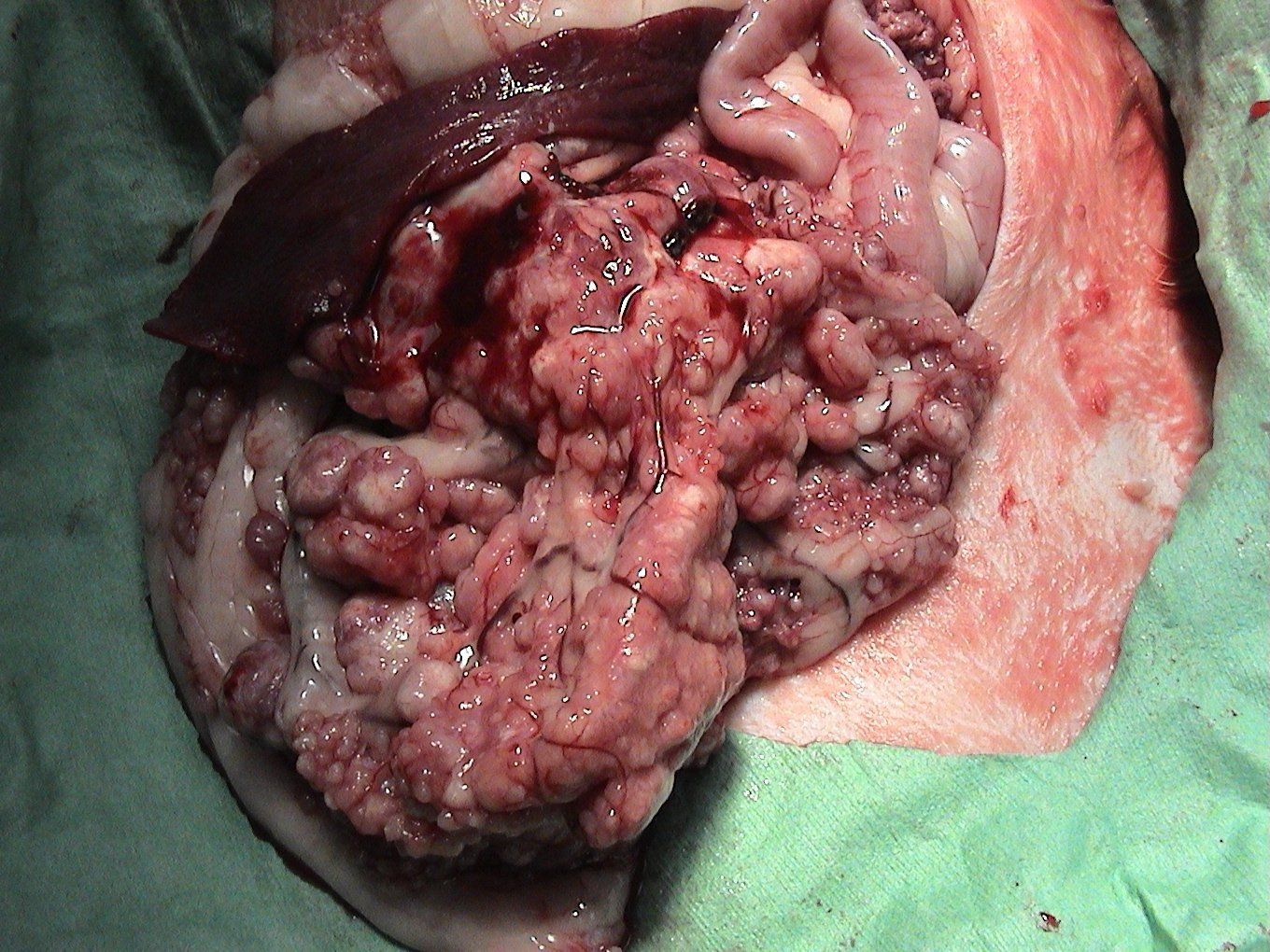
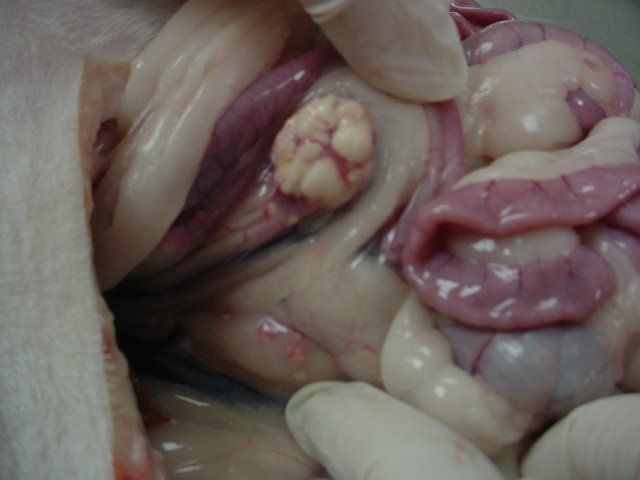
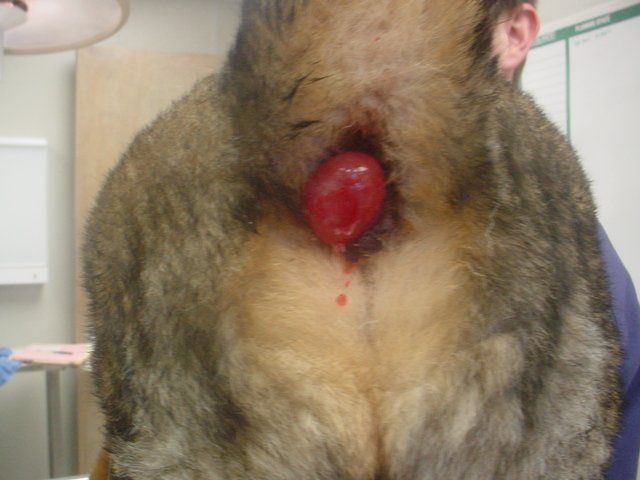
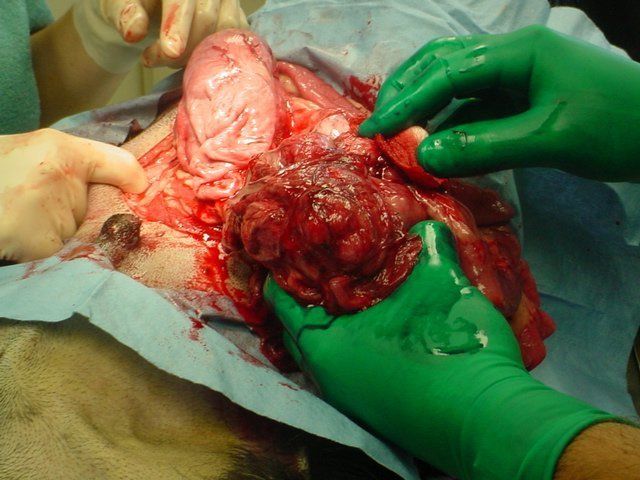
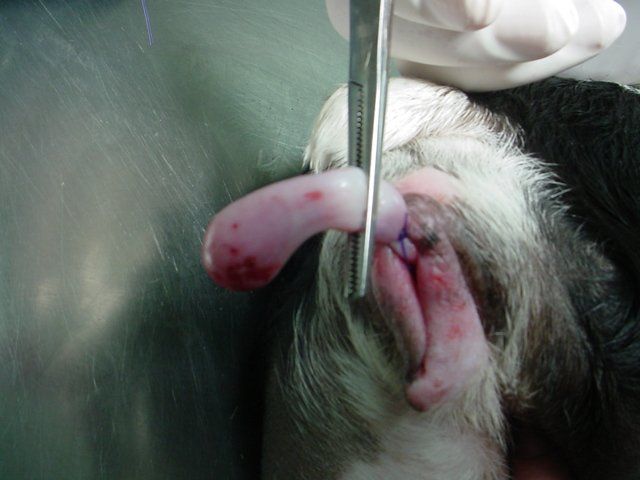
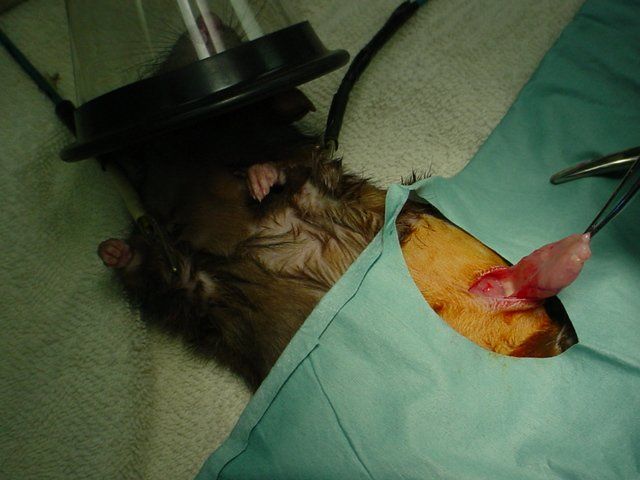

Share On: